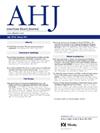Plasma Protein Biomarkers for Nutritional Status in Long Covid-19: Predictors of Cardiovascular Complications
IF 3.7
2区 医学
Q1 CARDIAC & CARDIOVASCULAR SYSTEMS
引用次数: 0
Abstract
This study aimed to identify plasma protein biomarkers for nutritional status as potential prognosticators of mortality in long-COVID-19, addressing the gap in understanding the disease's long-term cardiovascular risks and the role of immunity and nutrition in its progression.
In this study, initially, 329 individuals were recruited, meeting the inclusion criteria, comprising 89 healthy controls, 186 patients with mild infection, and 54 with severe disease. Two months post-COVID, follow-up was conducted, categorizing patients into survivors (n=212) and non-survivors (n=28). 2-Dimensional Gel Electrophoresis (2DE) of plasma samples for protein separation was performed; after that, proteins were identified through LC-MS/MS. Mascot version 2.3.02 was followed by analysis using Samespots software 4.5.1 to calculate protein volume and area coverage. GraphPad Prism 5.0 was used for statistical analysis.
LC-MS/MS confirmed Transthyretin (TTR) and serotransferrin (TF) as potential predictive biomarkers as the study found significant downregulation of TF and TTR in COVID-19 patients in comparison to healthy subjects, with a further decrease observed in severe cases compared to mild cases. Non-survivors also showed a significantly lower level.
The study uncovered serum nutritional biomarkers capable of accurately predicting COVID-19 prognosis and long-COVID mortality due to cardiovascular complications, facilitating tailored nutritional care and guidance for individuals combating SARS-CoV-2. These findings underscore the significance of developing tailored nutritional protocols to enhance dietary practices, complemented by using probiotics and prebiotics, to manage COVID-19 and other infections.
求助全文
约1分钟内获得全文
求助全文
来源期刊

American heart journal
医学-心血管系统
CiteScore
8.20
自引率
2.10%
发文量
214
审稿时长
38 days
期刊介绍:
The American Heart Journal will consider for publication suitable articles on topics pertaining to the broad discipline of cardiovascular disease. Our goal is to provide the reader primary investigation, scholarly review, and opinion concerning the practice of cardiovascular medicine. We especially encourage submission of 3 types of reports that are not frequently seen in cardiovascular journals: negative clinical studies, reports on study designs, and studies involving the organization of medical care. The Journal does not accept individual case reports or original articles involving bench laboratory or animal research.
 求助内容:
求助内容: 应助结果提醒方式:
应助结果提醒方式:


